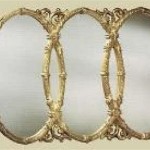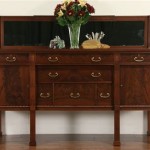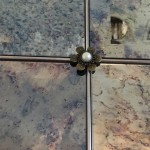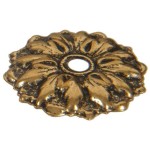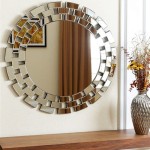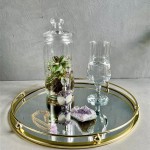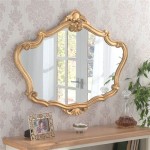Fancy Plastic Mirror Frames: An In-Depth Look
Mirror frames, traditionally crafted from materials like wood, metal, or glass, have evolved to embrace innovative alternatives, including plastic. Fancy plastic mirror frames offer a unique blend of aesthetic appeal, affordability, and practicality, making them a popular choice for various interior design applications. This article provides a comprehensive exploration of fancy plastic mirror frames, covering their types, advantages, disadvantages, applications, and factors to consider during selection.
Types of Fancy Plastic Mirror Frames
The term "plastic" encompasses a wide range of polymers, each possessing distinct properties that influence the final product's characteristics. Fancy plastic mirror frames are commonly manufactured from several types of plastic, including polystyrene (PS), acrylic (PMMA), polyvinyl chloride (PVC), and acrylonitrile butadiene styrene (ABS). Understanding the properties of each plastic is crucial for selecting the most appropriate frame for a given application.
Polystyrene (PS): Polystyrene is a rigid, brittle, and relatively inexpensive plastic. It is often used in the production of lightweight mirror frames. PS frames are generally less durable compared to those made from other plastics, and they are more susceptible to cracking or breaking upon impact. However, PS is easily molded and can be produced in a variety of colors and finishes. Its low cost makes it a budget-friendly option for decorative mirror frames.
Acrylic (PMMA): Also known as Plexiglas or Lucite, acrylic is a transparent thermoplastic known for its excellent optical clarity, high gloss finish, and resistance to weathering. Acrylic is more durable than polystyrene and offers better impact resistance. Acrylic mirror frames can be produced with a crystal-clear appearance, imitating the look of glass while being lighter and less prone to shattering. They are commonly used in modern and contemporary designs due to their sleek, minimalist aesthetic and ability to be easily colored or tinted.
Polyvinyl Chloride (PVC): PVC is a versatile plastic known for its durability, water resistance, and chemical resistance. PVC mirror frames are often used in bathroom settings or other areas where moisture is a concern. PVC is typically less aesthetically pleasing than acrylic or polystyrene in its raw form, but it can be treated with various coatings and finishes to improve its appearance. It is also relatively easy to clean and maintain. PVC frames are often used in more utilitarian or functional designs where durability is prioritized over elaborate aesthetics.
Acrylonitrile Butadiene Styrene (ABS): ABS is a strong, impact-resistant thermoplastic known for its toughness and ability to withstand high temperatures. ABS mirror frames are highly durable and suitable for use in areas where they might be subjected to rough handling or impact. ABS can be molded into complex shapes and can be painted or coated to achieve a variety of finishes. It finds application in both decorative and functional mirror frames where durability and resistance to impact are key considerations.
Beyond the base plastic, fancy plastic mirror frames often incorporate decorative elements and finishes to enhance their aesthetic appeal. These elements can include intricate moldings, embossed patterns, metallic coatings, and simulated wood grains. The possibilities are virtually endless, allowing for a wide range of designs to suit diverse interior design styles.
Advantages of Fancy Plastic Mirror Frames
Fancy plastic mirror frames offer several advantages compared to traditional materials like wood or metal. These advantages contribute to their growing popularity in both residential and commercial settings.
Cost-Effectiveness: Plastic mirror frames are generally more affordable than frames made from wood, metal, or glass. The lower material cost and the ease of manufacturing contribute to their cost-effectiveness. This makes them an attractive option for budget-conscious consumers or for large-scale projects where cost is a significant factor.
Lightweight: Plastic is significantly lighter than wood or metal. This makes plastic mirror frames easier to handle, transport, and install. The reduced weight also minimizes the stress on walls and hanging hardware, making them suitable for use on a wider range of wall types, including drywall and plaster.
Moisture Resistance: Certain types of plastic, such as PVC, are highly resistant to moisture. This makes them ideal for use in bathrooms, kitchens, or other areas where humidity is a concern. Unlike wood, plastic does not warp, rot, or swell when exposed to moisture, ensuring the frame maintains its structural integrity and appearance over time.
Durability: While some plastics like polystyrene are relatively brittle, others like acrylic and ABS offer excellent durability and impact resistance. These plastics are less prone to chipping, cracking, or breaking compared to glass or some types of wood. This makes plastic mirror frames a more practical choice for high-traffic areas or environments where they might be subjected to accidental impacts.
Design Versatility: Plastic can be easily molded into a wide range of shapes, sizes, and designs. This allows for greater design flexibility compared to traditional materials. Plastic mirror frames can be produced with intricate moldings, embossed patterns, and a variety of finishes, allowing them to complement diverse interior design styles, from classic to contemporary.
Low Maintenance: Plastic mirror frames are generally easy to clean and maintain. They can be wiped clean with a damp cloth and mild detergent. Unlike wood, they do not require periodic painting or sealing. The ease of maintenance makes them a convenient choice for busy households or commercial settings.
Disadvantages of Fancy Plastic Mirror Frames
Despite their numerous advantages, fancy plastic mirror frames also have some potential drawbacks that should be considered before making a purchase.
Perceived Quality: While advancements in plastic manufacturing have improved the aesthetics and durability of plastic mirror frames, some consumers still perceive them as being lower quality than frames made from traditional materials like wood or metal. This perception can be a barrier for some consumers who prioritize the look and feel of natural materials.
Environmental Concerns: The production of plastic can contribute to environmental pollution. Some plastics are not easily recyclable, and their disposal can lead to landfill waste. However, the industry is increasingly focused on developing sustainable plastics and improving recycling processes to mitigate these environmental concerns. Consumers can also choose frames made from recycled plastic to reduce their environmental impact.
Susceptibility to Scratches: Some types of plastic, particularly acrylic, can be susceptible to scratching. While scratches can often be buffed out, they can detract from the appearance of the frame. Care should be taken to avoid abrasive cleaners or harsh chemicals that could damage the surface of the plastic.
Heat Sensitivity: Some plastics can be sensitive to high temperatures. Exposure to direct sunlight or excessive heat can cause them to warp, discolor, or soften. It is important to avoid placing plastic mirror frames in areas where they will be exposed to extreme temperatures.
Limited Repair Options: While minor scratches can often be repaired, more significant damage to a plastic mirror frame may be difficult or impossible to fix. Unlike wood or metal frames, which can often be repaired by skilled craftspeople, plastic frames may need to be replaced if they are severely damaged.
Applications of Fancy Plastic Mirror Frames
Fancy plastic mirror frames find applications in a wide range of settings, including residential, commercial, and institutional environments. Their versatility, affordability, and aesthetic appeal make them a suitable choice for various purposes.
Residential Interiors: Plastic mirror frames are commonly used in homes to enhance the decor of living rooms, bedrooms, bathrooms, and hallways. They can be used as decorative accents, functional mirrors, or focal points in a room. The wide range of designs and finishes available allows homeowners to find frames that complement their personal style and the overall aesthetic of their home.
Commercial Spaces: Plastic mirror frames are often used in commercial spaces such as hotels, restaurants, retail stores, and offices. They can be used to create a sense of space, add visual interest, or provide functional mirrors for customers or employees. The durability and low maintenance of plastic frames make them a practical choice for high-traffic commercial environments.
Bathroom Mirrors: Due to their moisture resistance, plastic mirror frames, particularly those made from PVC, are well-suited for use in bathrooms. They can withstand the humid conditions of a bathroom without warping or deteriorating. They are commonly used above bathroom sinks or as part of vanity setups.
Decorative Mirrors: Plastic's moldability allows for the creation of highly decorative and ornate mirror frames. These are used in entryways, hallways, or dining rooms to enhance the aesthetic appeal of the space. Fancy plastic frames can be made to mimic antique metal or wood frames, offering a cost-effective alternative with better moisture resistance in certain applications.
Gyms and Dance Studios: The lightweight and impact-resistant properties of certain plastics, like ABS, make them suitable for use in gyms and dance studios. Large mirrors framed with durable plastic are safer, as they reduce the risk of shattering and causing injury. The cost-effectiveness also makes them attractive for large-scale installations.
Factors to Consider When Selecting Fancy Plastic Mirror Frames
When selecting fancy plastic mirror frames, several factors should be considered to ensure the chosen frame meets the specific needs and requirements of the application.
Material Type: The type of plastic used to manufacture the frame is a critical factor. Consider the properties of each plastic, such as durability, moisture resistance, and aesthetic appeal, and choose the plastic that best suits the intended use and environment. For example, PVC is a good choice for bathrooms, while ABS is a better choice for high-traffic areas.
Design and Style: The design and style of the frame should complement the overall aesthetic of the room. Consider the color, shape, and ornamentation of the frame and choose a design that enhances the existing decor. Ensure the frame's style aligns with the overall design of the room, whether it is modern, traditional, or eclectic.
Size and Dimensions: The size of the frame should be appropriate for the size of the mirror and the space where it will be hung. Consider the proportions carefully to ensure the frame does not overwhelm or get lost in the surroundings. Measure the area where the mirror will be placed to ensure the frame size is appropriate.
Durability and Impact Resistance: If the mirror frame will be placed in a high-traffic area or where it might be subjected to accidental impacts, choose a frame made from a durable and impact-resistant plastic, such as ABS. This will help to prevent damage and ensure the frame lasts longer.
Moisture Resistance: If the mirror frame will be placed in a bathroom or other humid environment, choose a frame made from a moisture-resistant plastic, such as PVC. This will prevent the frame from warping or deteriorating over time.
Cost: Consider the budget and choose a frame that offers the best value for the money. While plastic mirror frames are generally more affordable than frames made from other materials, the price can vary depending on the type of plastic, the design, and the features. Weigh the cost against the desired aesthetic and functional requirements.
Maintenance Requirements: Consider the maintenance requirements of the frame and choose a frame that is easy to clean and maintain. Plastic mirror frames are generally low-maintenance, but some types of plastic may be more susceptible to scratches or discoloration than others. Select a frame with a finish that is easy to wipe clean and resistant to damage.
Environmental Impact: For environmentally conscious consumers, consider choosing frames made from recycled plastic or plastics that are easily recyclable. This can help to reduce the environmental impact of the purchase.

Modern Silver Don 2 Table Fancy Mirror Plastic Frame For Home Size 15x40 Inch At Rs 36 Piece In New Delhi

Galaxy Looking Glass Plastic Mirror Frame Available In Diffe Fresh Colours At Rs 50 Piece Mirorr Delhi Id 24665184191

Modern Galaxy Fancy Plastic Mirror Frame Red Size Dimension 8 X 10 Inch Wxl At Rs 48 Piece In New Delhi

Classical Plastic Oval Shape Mirror Frame Buy China Whole Photo 9 78 Globalsources Com

Pink Plain Plastic Mirror Frame At Best In Mumbai Amar

Modern York Fancy Plastic Mirror Frame Red Size Dimension 8 X 10 Inch Wxl At Rs 42 Piece In New Delhi

China Manufacturing Whole Gold Bulk Plastic Frames High Quality Decorative Mirror Frame Buy Abs Photo 18 68 Globalsources Com

Modern York Fancy Plastic Mirror Frame Sky Blue Size Dimension 10 X 14 Inch Wxl At Rs 53 Piece In New Delhi

Fancy Oval Plastic Mirror Frame Manufacturer Supplier From Delhi

29 6x23 7 Home Decorative Plastic Mirror Frame Diamond For Make Up From China Manufacturer New Deco Arts And Crafts Co Ltd

